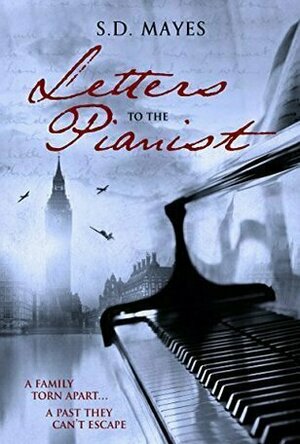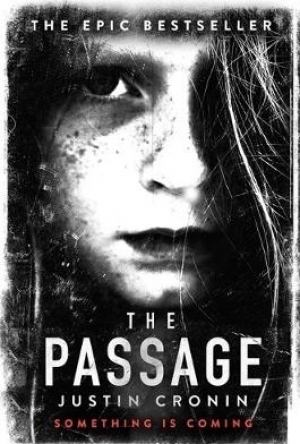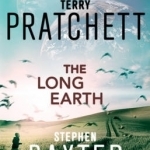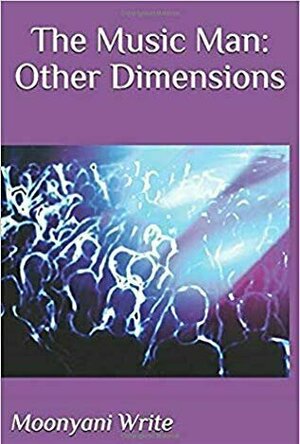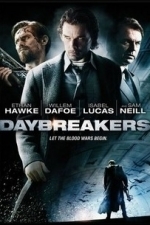Search
Search results
Kristin (149 KP) rated Kill Ratio in Books
Dec 7, 2018
Disclaimer: I received a copy in exchange for an honest review.
It's actually happened: the zombie apocalypse is among us. Caused by a virus spreading exponentially through the population, it looks like there's no end in sight. Chad Halverson, however, is going to do his best to make it out alive. See, he knows exactly how this all started, and the government--his own co-workers, in fact--want him dead for that knowledge. Meanwhile, the President and his council are holed up in Mount Weather, ready to make some chilling decisions that will affect the entire world. Who will win, who will lose, and will we ever be the same again?
I thought this was a captivating book. The characters are intriguing; the story is one that could eventually happen, what in this day of germ warfare and other craziness; and the general tone of the book is depressing but hopeful at the same time. Jumping back and forth between Chad's group and those at Mount Weather was a very neat concept, as you could see what was REALLY going on in the world versus what the government fat-cats could see and were debating about. That group in itself was great; I felt like that's exactly what would happen in a situation like this, and the ongoing tension and escalating tempers were just perfect.
I would recommend this book to anyone who likes a good zombie story, but also for those who want to know just what the government would do in this situation. I believe it's depicted quite accurately; will you?
4 stars
P.S. I may have shortened my boyfriend's life by showing him the cover upon first waking up. =)
It's actually happened: the zombie apocalypse is among us. Caused by a virus spreading exponentially through the population, it looks like there's no end in sight. Chad Halverson, however, is going to do his best to make it out alive. See, he knows exactly how this all started, and the government--his own co-workers, in fact--want him dead for that knowledge. Meanwhile, the President and his council are holed up in Mount Weather, ready to make some chilling decisions that will affect the entire world. Who will win, who will lose, and will we ever be the same again?
I thought this was a captivating book. The characters are intriguing; the story is one that could eventually happen, what in this day of germ warfare and other craziness; and the general tone of the book is depressing but hopeful at the same time. Jumping back and forth between Chad's group and those at Mount Weather was a very neat concept, as you could see what was REALLY going on in the world versus what the government fat-cats could see and were debating about. That group in itself was great; I felt like that's exactly what would happen in a situation like this, and the ongoing tension and escalating tempers were just perfect.
I would recommend this book to anyone who likes a good zombie story, but also for those who want to know just what the government would do in this situation. I believe it's depicted quite accurately; will you?
4 stars
P.S. I may have shortened my boyfriend's life by showing him the cover upon first waking up. =)
Phil Leader (619 KP) rated Letters to the Pianist in Books
Nov 19, 2019
War is hell. Sometimes that hell can be a little closer to home.
14 year old Ruth Goldberg lives with her family in the East End of London during the Second World War with her parents and younger sister and brother. Her life isn't perfect by any means but at least she has her family. When their house takes a direct hit from a German bomb, the children are orphaned and cast adrift to live with strangers.
Meanwhile a man is found in the rubble following the bombing, suffering from total amnesia, who is given the name Edward because cannot even remember his own. He does discover that he is an enormously skilled pianist and soon becomes famous and also rich after marrying the daughter of a well-connected aristocrat millionaire.
The story follows Ruth, her siblings and Edward through the war years and beyond as that one bombing raid changed all their lives forever. Some will find their new lives hold unexpected - even deadly - dangers and all will come to know love and friendship as well as loss and betrayal.
Mayes writes this novel with confidence, moving smoothly between the story lines as they unfold and intertwine. She makes the reader really feel the emotions the characters are going through, good or bad. Edward's story is particularly effective as his previous life slowly starts to come to light and the man he was isn't the person either those around him or Edward himself is comfortable with.
As with her previous book, Stop The World, although very different in subject matter this story is just as deeply affecting and once again I'm sure it will stay with me for some time.
14 year old Ruth Goldberg lives with her family in the East End of London during the Second World War with her parents and younger sister and brother. Her life isn't perfect by any means but at least she has her family. When their house takes a direct hit from a German bomb, the children are orphaned and cast adrift to live with strangers.
Meanwhile a man is found in the rubble following the bombing, suffering from total amnesia, who is given the name Edward because cannot even remember his own. He does discover that he is an enormously skilled pianist and soon becomes famous and also rich after marrying the daughter of a well-connected aristocrat millionaire.
The story follows Ruth, her siblings and Edward through the war years and beyond as that one bombing raid changed all their lives forever. Some will find their new lives hold unexpected - even deadly - dangers and all will come to know love and friendship as well as loss and betrayal.
Mayes writes this novel with confidence, moving smoothly between the story lines as they unfold and intertwine. She makes the reader really feel the emotions the characters are going through, good or bad. Edward's story is particularly effective as his previous life slowly starts to come to light and the man he was isn't the person either those around him or Edward himself is comfortable with.
As with her previous book, Stop The World, although very different in subject matter this story is just as deeply affecting and once again I'm sure it will stay with me for some time.
Merissa (13739 KP) rated The Becalmer in Books
Sep 25, 2023
THE BECALMER is what I think is the first in a new series. Harica is still at school and is called upon to help stop a war! How, you might ask. Well, she has the ability to use her mind to see both sides and to come to a compromise. When she is approached by a dodgy government agency, she initially doesn't want to help but changes her mind. Her parents are set against it though, for reasons Harica doesn't understand. So she does what any teenager does, and does it anyway. There is more to it than she thought, and she is in danger in more ways than she realises.
This was a gripping read, taking the reader along for the ride. There are enough twists and turns to keep the story interesting, together with typical ideals of the good guys vs. the big bad. The world-building was nicely done, being 'normal' enough but with added Sci-Fi elements. I did find the end a little abrupt even if everything was wrapped up for this part of the story.
A great YA read that I have no hesitation in recommending.
** same worded review will appear elsewhere **
* A copy of this book was provided to me with no requirements for a review. I voluntarily read this book; the comments here are my honest opinion. *
Merissa
Archaeolibrarian - I Dig Good Books!
Sep 20, 2023
This was a gripping read, taking the reader along for the ride. There are enough twists and turns to keep the story interesting, together with typical ideals of the good guys vs. the big bad. The world-building was nicely done, being 'normal' enough but with added Sci-Fi elements. I did find the end a little abrupt even if everything was wrapped up for this part of the story.
A great YA read that I have no hesitation in recommending.
** same worded review will appear elsewhere **
* A copy of this book was provided to me with no requirements for a review. I voluntarily read this book; the comments here are my honest opinion. *
Merissa
Archaeolibrarian - I Dig Good Books!
Sep 20, 2023
Kaz (232 KP) rated The Passage in Books
May 15, 2019
A really enjoyable read
Contains spoilers, click to show
I initially read this book in about 2000, so when I decided to re-read it, I couldn't remember much about it. I'm glad I had left it for so long before I read it again, as I was surprised how good this was.
The writing is very good, it reminded me very much of 'The Stand' by Stephen King, because of the dark writing, the way in which it builds up in suspense and also the plot's subject matter. However, I wouldn't say that this was a copy of 'The Stand', it has it's own identity too.
The characters are very believable and complex. I really liked the fact that the characters weren't simply 'Bad' or 'Good'. All of the characters had different sides to them, which made them all the more believable. One criticism I would make, would be that I did find that the more central characters, were better developed than the secondary ones. Actually, in the second section of the novel, I felt that there were too many characters to keep track of. However, as the novel progressed, it became clear which characters I should be paying more attention to.
I was also happy that the 'vampires' were not your stereotypical blood sucking beings allergic to garlic, that could be killed by stakes and crosses. I was also really glad that they were not the romantic, shiny vampires either. I really liked the fact Justin Cronin hadn't written them as just 'bad' either. There was a sensitivity, which made you as a reader, actually feel sorry for these beings.
The pace of the the novel was generally good. I found the first section of the book to be gripping. In fact, I found it very difficult to put the book down. During the second section of the book however, it kind of ground to a halt and I didn't enjoy reading that part as much as the others. However on reflection, I think that the slow build in tension, to the next exciting bit. was very clever. This was because I don't think I would have been able to cope with a fast paced book of 900 plus pages!
Being 900 pages I thought that by the time I got to the end of this book,I would have been desperate to finish and start something new.. However, I was actually sad when I had finished 'The Passage' . Even though this is a long book, I didn't notice how chunky it was and I was able to really get into the world that Justin Cronin had created.
I really liked this book and I'm looking forward to reading the next installment!
My Rating **** 1/2
The writing is very good, it reminded me very much of 'The Stand' by Stephen King, because of the dark writing, the way in which it builds up in suspense and also the plot's subject matter. However, I wouldn't say that this was a copy of 'The Stand', it has it's own identity too.
The characters are very believable and complex. I really liked the fact that the characters weren't simply 'Bad' or 'Good'. All of the characters had different sides to them, which made them all the more believable. One criticism I would make, would be that I did find that the more central characters, were better developed than the secondary ones. Actually, in the second section of the novel, I felt that there were too many characters to keep track of. However, as the novel progressed, it became clear which characters I should be paying more attention to.
I was also happy that the 'vampires' were not your stereotypical blood sucking beings allergic to garlic, that could be killed by stakes and crosses. I was also really glad that they were not the romantic, shiny vampires either. I really liked the fact Justin Cronin hadn't written them as just 'bad' either. There was a sensitivity, which made you as a reader, actually feel sorry for these beings.
The pace of the the novel was generally good. I found the first section of the book to be gripping. In fact, I found it very difficult to put the book down. During the second section of the book however, it kind of ground to a halt and I didn't enjoy reading that part as much as the others. However on reflection, I think that the slow build in tension, to the next exciting bit. was very clever. This was because I don't think I would have been able to cope with a fast paced book of 900 plus pages!
Being 900 pages I thought that by the time I got to the end of this book,I would have been desperate to finish and start something new.. However, I was actually sad when I had finished 'The Passage' . Even though this is a long book, I didn't notice how chunky it was and I was able to really get into the world that Justin Cronin had created.
I really liked this book and I'm looking forward to reading the next installment!
My Rating **** 1/2
Jordan Binkerd (567 KP) rated The Long Earth in Books
Aug 13, 2019
Note: this review is transposted from my personal review blog, and so was originally written several years ago. I figured if I reposted it here, someone might actually read it….
I’m a huge fan of Terry Pratchett’s work, in case you hadn’t noticed. I’m slowly working my way through his Discworld novels and Good Omens: The Nice and Accurate Predictions of Agnes Nutter, Witch, cowritten with Neil Gaiman, is among my favorite books of all time.* So when I discovered The Long Earth at my local library, I was ecstatic. I’d heard good things about Stephen Baxter, but never actually read any of his material. What I found was one of the best novels I have read in a very long time.
The premise here is that there are infinite worlds parallel to ours, spread out across the vast “contingency tree” of possible Earths, and in all of the Long Earth only one iteration has developed Human life–ours. Throughout our history there have always been a few with the natural ability to “step” between worlds at will, and still others who did so unintentionally and disappeared forever, but the world at large was unaware of this phenomenon until a reclusive scientist posted the blueprint for a “stepper” device on the internet and promptly disappeared from his apartment. Suddenly, the whole of the Long Earth is opened up to humanity. Suddenly, there is no shortage of land or resources. Economies are hard hit, jobs are lost, and once again humanity’s pioneer spirit is stirred to go out into the frontier and try to make their way….
Joshua Valiente is a so-called “natural stepper,” but he is probably unique among humanity. In the stress of childbirth, his mother stepped out of her world and into a parallel forest before slipping back without him. She managed to get back and recover him pretty quickly, but nevertheless young Joshua spent the first ten minutes or so of his life completely alone in his universe. As a result, he is uniquely attuned to the Long Earth. He can step between worlds without nausea, and is keenly sensitive to the number of people around, growing intensely uncomfortable the more crowded things get. Now, fifteen years after the world learned of the Long Earth, he spends most of his time exploring where no man has gone before. Lobsang, on the other hand, is a keenly intelligent AI, who may or may not be the latest reincarnation of a Tibetan motorcycle repairman. In collaboration with the shadowy Black Corporation, Lobsang has conceived a plan to test just how far the Long Earth goes. And he wants Joshua to go with him….the resulting journey is as much an exploration of what may have been as it is a geographical one, with most worlds mirroring our own, but a few display the effects of a cosmic “toss of a coin” going the other way–for example, there’s one where the Earth was completely destroyed by an asteroid strike sometime in the distant past.
Put quite plainly, this was the best thing I’ve read in a very long time. Very original, and to my (admittedly limited) understanding very faithful to the relevant science without losing quality of narrative or character. Pratchett’s humor and sardonic narrative voice shines through quite often in the interpersonal or introspective moments as well as those detailing more plot driven points–those scenes that would, in a film, become some form of montage showing that time is passing and this is what’s happening in the meantime. As I mentioned, I’ve never read Baxter before, so it’s harder to pick out his voice from their collaboration.
Infodumping has become something of a cardinal sin in the science fiction world, but sometimes you just have to throw some information at the reader so that he doesn’t get lost. I felt that The Long Earth handled that very well. We get our first glimpse at the long earth in montage mode, a series of vignettes that don’t make sense on their own, people popping in and out of worlds without understanding themselves what is going on. This is followed by the main story, twenty years after the discovery of the Long Earth, in which the bare bones are presented via a TV interview a character is half-watching while he waits. These bare bones of the conceptual basis of the book are then fleshed out in more detail as Joshua and Lobsang and introduced and get to know each other, discussing the various theories regarding the Long Earth at length in an effort to better understand it themselves. This is interspersed with flashbacks, sometimes Joshua recalling his experiences, sometimes Lobsang telling stories of other people based on his research into early encounters with the Long Earth. In this way Pratchett and Baxter manage to convey how humanity as a whole is dealing, not just Joshua and Lobsang. If I have one complaint with this it is not always clear why or how we are being told this–you don’t discover until the end of the chapter that Lobsang is telling this to Joshua instead of the authors just throwing in a tangential bit with no direct connection. And it is all connected–every revelation, every character you visit and then abandon early in the book will come back and have significance later on.
This is perhaps not the easiest read–you do have to engage it to understand it properly–but neither is it an incomprehensible enigma. As long as you pay attention you should be fine.
CONTENT: Some R-rated language, but not nearly what you could find elsewhere. Some violence, some grisly aftermath of violence. Sexual references, but nothing explicit.
*I’m frankly a little surprised I don’t have a review of that one up here, I must have reread it last just before I started doing this. I’ll have to fix that in the near future….
Original post: https://jordanbinkerd.wordpress.com/2013/09/18/review-the-long-earth-by-terry-pratchett-stephen-baxter/
I’m a huge fan of Terry Pratchett’s work, in case you hadn’t noticed. I’m slowly working my way through his Discworld novels and Good Omens: The Nice and Accurate Predictions of Agnes Nutter, Witch, cowritten with Neil Gaiman, is among my favorite books of all time.* So when I discovered The Long Earth at my local library, I was ecstatic. I’d heard good things about Stephen Baxter, but never actually read any of his material. What I found was one of the best novels I have read in a very long time.
The premise here is that there are infinite worlds parallel to ours, spread out across the vast “contingency tree” of possible Earths, and in all of the Long Earth only one iteration has developed Human life–ours. Throughout our history there have always been a few with the natural ability to “step” between worlds at will, and still others who did so unintentionally and disappeared forever, but the world at large was unaware of this phenomenon until a reclusive scientist posted the blueprint for a “stepper” device on the internet and promptly disappeared from his apartment. Suddenly, the whole of the Long Earth is opened up to humanity. Suddenly, there is no shortage of land or resources. Economies are hard hit, jobs are lost, and once again humanity’s pioneer spirit is stirred to go out into the frontier and try to make their way….
Joshua Valiente is a so-called “natural stepper,” but he is probably unique among humanity. In the stress of childbirth, his mother stepped out of her world and into a parallel forest before slipping back without him. She managed to get back and recover him pretty quickly, but nevertheless young Joshua spent the first ten minutes or so of his life completely alone in his universe. As a result, he is uniquely attuned to the Long Earth. He can step between worlds without nausea, and is keenly sensitive to the number of people around, growing intensely uncomfortable the more crowded things get. Now, fifteen years after the world learned of the Long Earth, he spends most of his time exploring where no man has gone before. Lobsang, on the other hand, is a keenly intelligent AI, who may or may not be the latest reincarnation of a Tibetan motorcycle repairman. In collaboration with the shadowy Black Corporation, Lobsang has conceived a plan to test just how far the Long Earth goes. And he wants Joshua to go with him….the resulting journey is as much an exploration of what may have been as it is a geographical one, with most worlds mirroring our own, but a few display the effects of a cosmic “toss of a coin” going the other way–for example, there’s one where the Earth was completely destroyed by an asteroid strike sometime in the distant past.
Put quite plainly, this was the best thing I’ve read in a very long time. Very original, and to my (admittedly limited) understanding very faithful to the relevant science without losing quality of narrative or character. Pratchett’s humor and sardonic narrative voice shines through quite often in the interpersonal or introspective moments as well as those detailing more plot driven points–those scenes that would, in a film, become some form of montage showing that time is passing and this is what’s happening in the meantime. As I mentioned, I’ve never read Baxter before, so it’s harder to pick out his voice from their collaboration.
Infodumping has become something of a cardinal sin in the science fiction world, but sometimes you just have to throw some information at the reader so that he doesn’t get lost. I felt that The Long Earth handled that very well. We get our first glimpse at the long earth in montage mode, a series of vignettes that don’t make sense on their own, people popping in and out of worlds without understanding themselves what is going on. This is followed by the main story, twenty years after the discovery of the Long Earth, in which the bare bones are presented via a TV interview a character is half-watching while he waits. These bare bones of the conceptual basis of the book are then fleshed out in more detail as Joshua and Lobsang and introduced and get to know each other, discussing the various theories regarding the Long Earth at length in an effort to better understand it themselves. This is interspersed with flashbacks, sometimes Joshua recalling his experiences, sometimes Lobsang telling stories of other people based on his research into early encounters with the Long Earth. In this way Pratchett and Baxter manage to convey how humanity as a whole is dealing, not just Joshua and Lobsang. If I have one complaint with this it is not always clear why or how we are being told this–you don’t discover until the end of the chapter that Lobsang is telling this to Joshua instead of the authors just throwing in a tangential bit with no direct connection. And it is all connected–every revelation, every character you visit and then abandon early in the book will come back and have significance later on.
This is perhaps not the easiest read–you do have to engage it to understand it properly–but neither is it an incomprehensible enigma. As long as you pay attention you should be fine.
CONTENT: Some R-rated language, but not nearly what you could find elsewhere. Some violence, some grisly aftermath of violence. Sexual references, but nothing explicit.
*I’m frankly a little surprised I don’t have a review of that one up here, I must have reread it last just before I started doing this. I’ll have to fix that in the near future….
Original post: https://jordanbinkerd.wordpress.com/2013/09/18/review-the-long-earth-by-terry-pratchett-stephen-baxter/
Night Reader Reviews (683 KP) rated The Music Man: Other Dimensions in Books
Feb 11, 2020
Honest Review for Free Copy of Book
Before you read this review I just want to mention that I do like the idea behind this book and do not want to discourage anyone from reading it. This was just my personal opinion as all my reviews are.
The Music Man: Other Dimensions by Moonyani Write picks up directly where the previous one left off. It has the same writing style as the previous one for those who enjoyed that. However, at the time of my writing this the book could still use some work (although keep in mind I am just a reader and not an editor).
This second book welcomes back The Music Man (Cornelius), Jimmy, and his friends at a boarding school for the musically gifted. At first, Jimmy believes all the previous events are just a dream but he soon pins down Cornelius, who just happens to be a teacher at his school and learns the truth. The bad news is Hornsbury and the witches have returned in the other dimension and are trying to steal the other Jimmy’s talents and take over the world.
Before Jimmy and his friends can stop Hornsbury and save everyone they must complete a few other tasks. The first of these tasks is to save Chris from his possession and return the book he stole to its rightful owner, Priala. Priala is a powerful witch and on the side of good who has agreed to help stop Hornsbury so long as she gets her spellbook back first. They also want to help Phillip regain his human form and free all those already possessed by Hornsbury. Sadly all seems lost when both Jimmy’s and Cornelius’s girlfriend are captured by Honsbury. It then becomes a race against the clock to stop him before it is too late.
I enjoyed how the students from our dimension and those from the other dimension interacted with each other. It was interesting to see how the friendships formed almost instantly between many of them. Of course, the surprise at the end was nice, although it mirrored the ending of the first book. The amount of repetition is this book was a major issue for me and made it extremely hard to read. To be honest I got bored with it quickly. The story is slow to make progress and it seems like there are character descriptions thrown in at random which interrupts the flow of the story. It could be the format that I received this book in but yet again there were few paragraphs and almost every sentence started a completely new line.
This book is ideal for children as I found nothing inappropriate in it. It might be a bit on the long side for some younger readers but making one chapter at a time a reading goal should help with that issue. I rate this book 1 out of 4. Unfortunately, I found this book to be way too repetitive and slow to be enjoyable. In contrast, the big battle at the end that everything was leading up to was over so quickly that it didn’t create any tension or excitement. I do not like doing this but in this book’s current condition I can not recommend it.
https://nightreaderreviews.blogspot.com/
https://www.facebook.com/nightreaderreviews
https://smashbomb.com/nightreader
The Music Man: Other Dimensions by Moonyani Write picks up directly where the previous one left off. It has the same writing style as the previous one for those who enjoyed that. However, at the time of my writing this the book could still use some work (although keep in mind I am just a reader and not an editor).
This second book welcomes back The Music Man (Cornelius), Jimmy, and his friends at a boarding school for the musically gifted. At first, Jimmy believes all the previous events are just a dream but he soon pins down Cornelius, who just happens to be a teacher at his school and learns the truth. The bad news is Hornsbury and the witches have returned in the other dimension and are trying to steal the other Jimmy’s talents and take over the world.
Before Jimmy and his friends can stop Hornsbury and save everyone they must complete a few other tasks. The first of these tasks is to save Chris from his possession and return the book he stole to its rightful owner, Priala. Priala is a powerful witch and on the side of good who has agreed to help stop Hornsbury so long as she gets her spellbook back first. They also want to help Phillip regain his human form and free all those already possessed by Hornsbury. Sadly all seems lost when both Jimmy’s and Cornelius’s girlfriend are captured by Honsbury. It then becomes a race against the clock to stop him before it is too late.
I enjoyed how the students from our dimension and those from the other dimension interacted with each other. It was interesting to see how the friendships formed almost instantly between many of them. Of course, the surprise at the end was nice, although it mirrored the ending of the first book. The amount of repetition is this book was a major issue for me and made it extremely hard to read. To be honest I got bored with it quickly. The story is slow to make progress and it seems like there are character descriptions thrown in at random which interrupts the flow of the story. It could be the format that I received this book in but yet again there were few paragraphs and almost every sentence started a completely new line.
This book is ideal for children as I found nothing inappropriate in it. It might be a bit on the long side for some younger readers but making one chapter at a time a reading goal should help with that issue. I rate this book 1 out of 4. Unfortunately, I found this book to be way too repetitive and slow to be enjoyable. In contrast, the big battle at the end that everything was leading up to was over so quickly that it didn’t create any tension or excitement. I do not like doing this but in this book’s current condition I can not recommend it.
https://nightreaderreviews.blogspot.com/
https://www.facebook.com/nightreaderreviews
https://smashbomb.com/nightreader
Sarah (7800 KP) rated Daybreakers (2009) in Movies
Nov 15, 2019
A great take on a vampire film
I can't believe I've never seen this film before. Not only do I love vampire films, I also have a soft spot for Sam Neill and Ethan Hawke, so I should've watched this a long time ago!
This is a very refreshing and original take on a vampire film. It's not an idea I've seen before, and it works really well. The background to the story and vampires is flashed over so quickly during the opening scenes and credits, and at a 1hr40 runtime this film really doesn't mess around. The vampire world looks great and I loved the grayscale and darker camera shots whenever the vampires were on screen, it made a stark contrast to the scenes set in daylight. This is such a different version of vampires to what we're used to and there are parts of this where you almost feel sorry for them.
Ethan Hawke is wonderful as Ed, and Sam Neill is deliciously wicked as he has been in other films, despite the fact I cant stop seeing him as Alan Grant! I think Willem Dafoe was a tad underused thought. The best thing I loved about this film was the gore and physical effects. It's an 18 for a reason and I loved all of the blood and guts. Admittedly some of the gore seemed a little over the top and ridiculous towards the end, but this just made it all the more hilariously enjoyable.
This film isn't perfect. I think some of the CGI is dodgy in parts which is a shame as the rest of the effects are rather good. And the sub plot about Sam Neill's daughter seemed a little flimsy. But aside from this, I think Daybreakers is a great underrated vampire film with a unique story, that seems to have gone without the recognition it deserves.
This is a very refreshing and original take on a vampire film. It's not an idea I've seen before, and it works really well. The background to the story and vampires is flashed over so quickly during the opening scenes and credits, and at a 1hr40 runtime this film really doesn't mess around. The vampire world looks great and I loved the grayscale and darker camera shots whenever the vampires were on screen, it made a stark contrast to the scenes set in daylight. This is such a different version of vampires to what we're used to and there are parts of this where you almost feel sorry for them.
Ethan Hawke is wonderful as Ed, and Sam Neill is deliciously wicked as he has been in other films, despite the fact I cant stop seeing him as Alan Grant! I think Willem Dafoe was a tad underused thought. The best thing I loved about this film was the gore and physical effects. It's an 18 for a reason and I loved all of the blood and guts. Admittedly some of the gore seemed a little over the top and ridiculous towards the end, but this just made it all the more hilariously enjoyable.
This film isn't perfect. I think some of the CGI is dodgy in parts which is a shame as the rest of the effects are rather good. And the sub plot about Sam Neill's daughter seemed a little flimsy. But aside from this, I think Daybreakers is a great underrated vampire film with a unique story, that seems to have gone without the recognition it deserves.

iChess - Chess puzzles
Games
App
Chess puzzles are an ideal way to practice without having to find an opponent or spend time playing...

Air France Press
News and Travel
App
With the Air France Press app, sit back and relax… Your journey is already starting! Even before...

